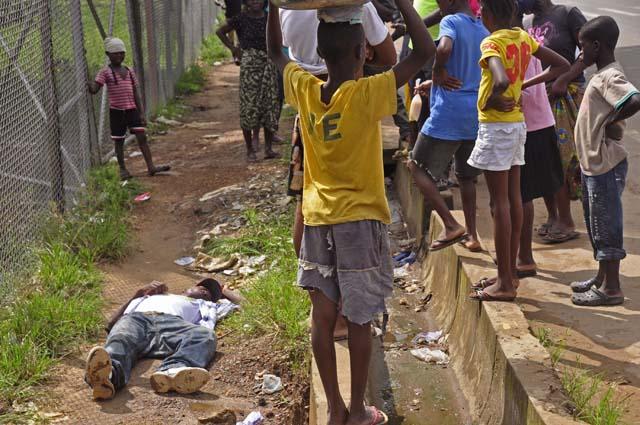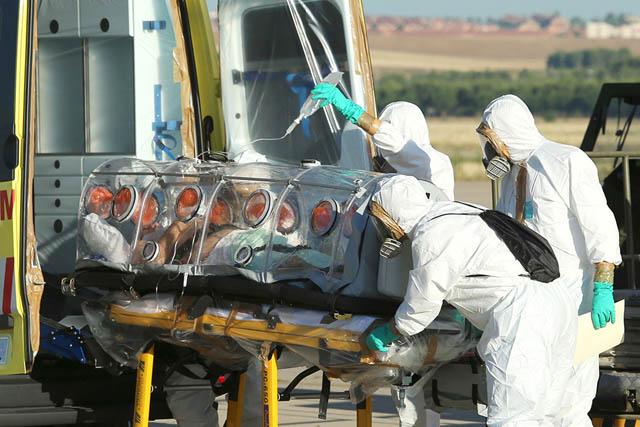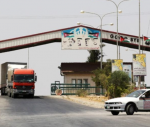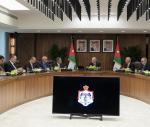You are here
WHO declares Ebola epidemic a global emergency
By AFP - Aug 09,2014 - Last updated at Aug 09,2014
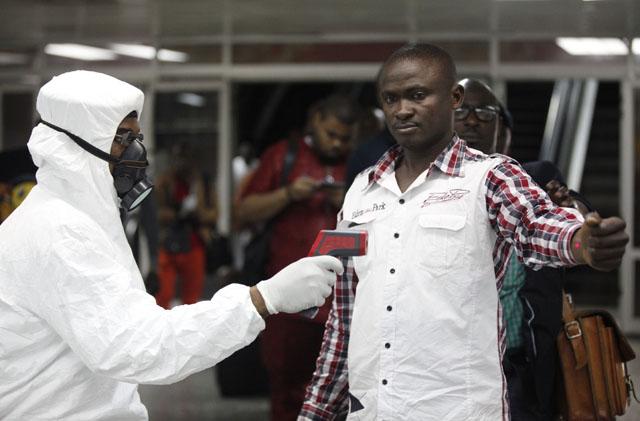
GENEVA — Nigeria became the latest country to declare a national emergency over the deadly Ebola virus on Friday, as the World Health Organisation (WHO) called the epidemic that has claimed nearly 1,000 lives a global health crisis.
Nigerian President Goodluck Jonathan ordered the immediate release of 1.9 billion naira ($11.7 million, 8.7 million euros) to fund the fight against the disease as Africa’s most populous nation confirmed two more Ebola cases, bringing the total number of infections to nine — including two deaths.
The WHO appealed for international aid to help afflicted countries after a rare meeting of the UN health body’s emergency committee, which urged screening of all people flying out of affected countries in west Africa.
It stopped short of calling for global travel restrictions, urging airlines to take strict precautions but to continue flying to the west African countries hit by the outbreak.
And it called on countries around the globe to be prepared to “detect, investigate and manage” Ebola cases if they should arise.
WHO director-general Margaret Chan appealed for greater help for those worst hit by the “largest, most severe and most complex outbreak in the nearly four-decade history of this disease”.
“I am declaring the current outbreak a public health emergency of international concern,” Chan said, warning of the “serious and unusual nature of the outbreak, and the potential for further international spread”.
States of emergency had already been declared in the hardest hit countries of Guinea, Liberia and Sierra Leone. Nigeria became the latest on Friday.
The Ivory Coast, which neighbours Guinea and Liberia, said it was declaring a “very high” level of alert, while Benin is also investigating a suspect patient.
ArcelorMittal said it had halted work to expand its iron ore mines in Liberia after staff were evacuated due to concerns over the epidemic.
In the first European case, Spain is treating an elderly priest who contracted the disease while helping patients in Liberia.
‘Out of control’
Defining the epidemic a public health emergency of international concern — a label only used twice before, during the H1N1 swine flu pandemic in 2009 and last May for the reemergence of polio — “alerts the world to the need for high vigilance”, Chan said.
The Doctors Without Borders (MSF) charity, which has warned the virus is “out of control”, hailed the move, but said there needed to be immediate action on the ground.
“Lives are being lost because the response is too slow,” said head of operations Bart Janssens.
Ebola had by Wednesday claimed at least 961 lives and infected nearly 1,800 people since breaking out in Guinea earlier this year, with 29 people dying in just two days, the WHO said.
“The likelihood is that it will get worse before it gets better,” WHO health security chief Keiji Fukuda said, with the outbreak likely to last for months.
In Liberia, soldiers in Grand Cape Mount province — one of the worst-affected areas — have set up road blocks to limit travel to the capital Monrovia, as bodies reportedly lay unburied in the streets.
In Sierra Leone, which has the most confirmed infections, 800 troops were sent to guard hospitals treating Ebola patients. Two towns in the east were put under quarantine.
US health authorities said they would be sending extra personnel and resources to Nigeria, where doctors suspended a nearly five-week strike to help prevent the virus taking hold in sub-Saharan Africa’s most populous country.
‘Africans should
get new drug’
As African nations struggled with the scale of the epidemic, the scientists who discovered the virus in 1976 have called for an experimental drug being used on two infected Americans to be made available to Africans.
The two Americans, who worked for aid agencies in Liberia, have shown signs of improvement since being given ZMapp, made by US company Mapp Pharmaceuticals.
There is no proven treatment or cure for Ebola and the use of the experimental drug has sparked an ethical debate. The WHO is planning a special meeting next week to discuss the issue.
US regulators meanwhile loosened restrictions on another experimental drug which may allow it to be tried on infected patients in Africa.
In Canada, a hospital put a patient in isolation after he arrived in the country from Nigeria, local media said.
A doctor at the Brampton, Ontario hospital, near Toronto, said the patient had a fever and other symptoms similar to those seen in Ebola cases, the news channel CP24 said.
Ebola causes severe fever and, in the worst cases, unstoppable bleeding. It is transmitted through contact with bodily fluids, and people living with or caring for patients are most at risk.
Fatality rates can approach 90 per cent, but the latest outbreak has killed around 55-60 per cent of those infected.
The earlier the virus is discovered, the better the chances are of survival. Although air travel means Ebola cases could appear far beyond the epicentre of the crisis, Fukuda told AFP that large outbreaks further afield were unlikely.
“If you have health systems, you have awareness, you are ready for it, this is something that you can stop,” he said.
The strength of the current outbreak can largely be attributed to the dismal state of health services in the affected countries, which have far from enough doctors, nurses, laboratory technicians and equipment to face the onslaught.
Charity Save the Children warned that people carrying the virus, particularly children, were slipping through the cracks.
Tom Skinner, a spokesman for the US Centres for Disease Control and Prevention signalled particular concern over Ebola’s spread to Nigeria.
“We are really concerned about Lagos, and the potential for spreading there given the fact that Lagos and Nigeria for that matter have never seen Ebola,” he said.
Related Articles
Liberia battled on Tuesday to halt the spread of the Ebola disease in its crowded, run-down oceanside capital Monrovia, recording the most new deaths as fatalities from the world's worst outbreak of the deadly virus rose above 1,200.
The World Health Organisation authorised the use of experimental drugs in the fight against Ebola on Tuesday as the death toll topped 1,000 and a Spanish priest became the first European to succumb to the latest outbreak of the virus.
The World Health Organisation (WHO) said on Thursday it was "reasonably confident" that the Ebola virus plaguing three West African countries had not spread into neighbouring states.


